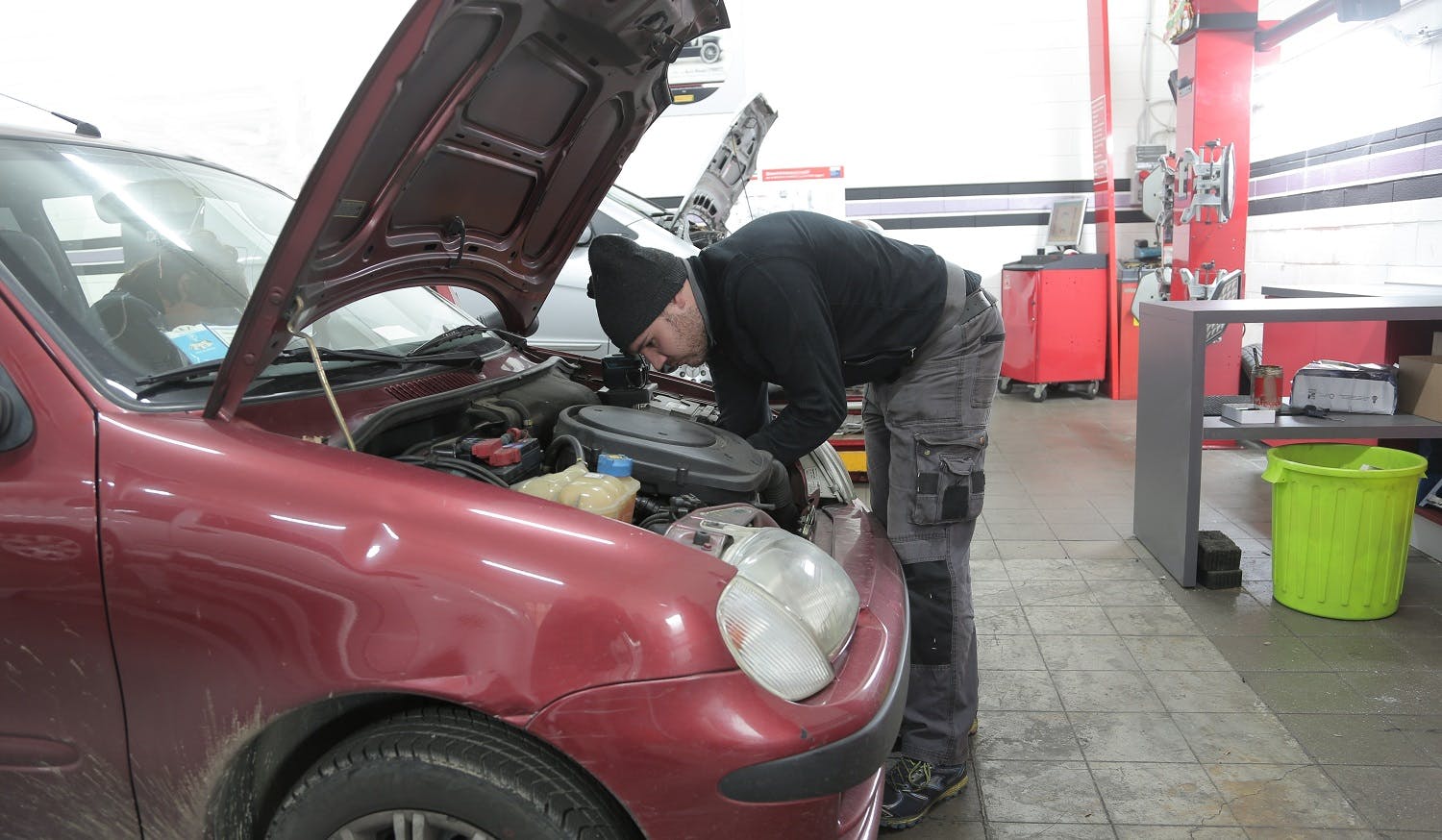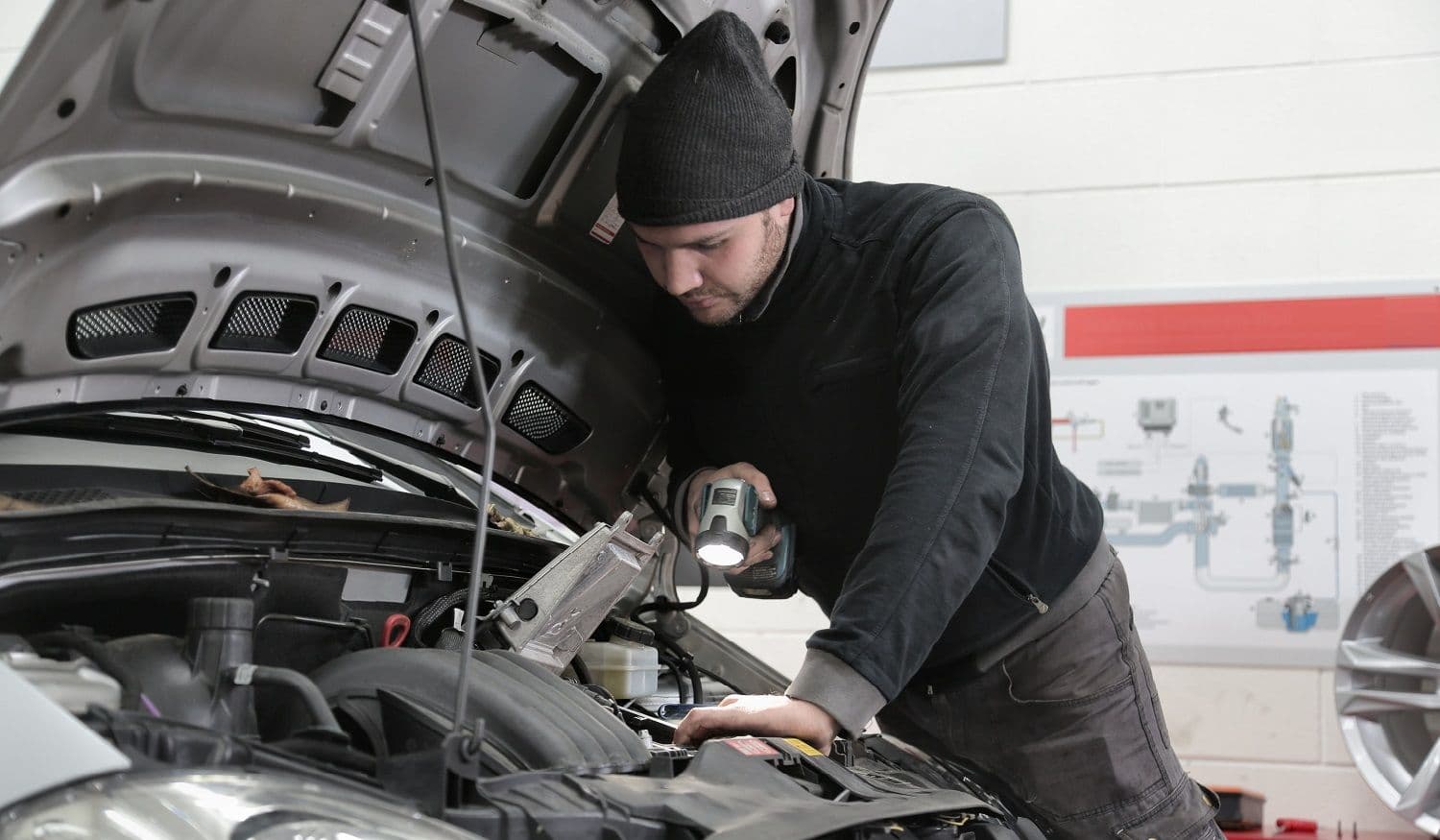Spark Plugs: An Essential Component of Car Maintenance
Spark plugs are crucial car maintenance items that should not be overlooked or neglected. They play a significant role in engine performance, fuel mileage, and exhaust emission standards. The best way to determine when spark plug replacement is needed is the maintenance schedule for your specific vehicle. The life expectancy of spark plugs varies widely based on the vehicle and engine designs and spark plug type. If you are not the original owner of the vehicle and are unaware of its maintenance history, there are some additional indicators to consider. Spark plugs are responsible for providing the literal ignition that allows your car to start and drive. Although they are relatively inexpensive, they are vitally important. But how do you know if your spark plugs need replacing?
How does a spark plug go bad?
Knowing what we know about spark plugs — that they provide the spark each and every time your car starts — it stands to reason that they would get quite the workout. This workout can eventually lead to a buildup of fuel residue on the plug itself, which can dampen its ignition capability. Another common problem is that the gap between the two electrodes (where the actual spark occurs) can lengthen due to extended use and that the fuel/air mixture will fail to bridge the gap during ignition.

What signs are there that your spark plugs are bad or failing?
Listed below are 6 common symptoms of bad spark plugs that have failed and need to be replaced as soon as possible.
1. Slow acceleration
The most common cause of poor acceleration in most vehicles is a problem with the ignition system. Today's modern engines have multiple sensors that tell the onboard computer and ignition system when to send electric pulses to fire the spark plug, so the issue may be with a faulty sensor. However, sometimes the issue is as simple as a worn-out spark plug. A spark plug is composed of materials that work together to produce a spark hot enough to ignite the air-fuel mixture. When those materials wear out, the effectiveness of the spark plug is reduced, which can significantly reduce the acceleration of the vehicle.
If you notice that your car is running sluggishly or does not accelerate as quickly as it used to, it may be attributed to a faulty spark plug that needs to be replaced. However, you should contact a mechanic to inspect this issue as it could be caused by multiple other factors including bad fuel filters, dirty or clogged fuel injector, or problems with oxygen sensors.
2. Poor Fuel Economy
A fully functioning spark plug helps burn fuel efficiently in the combustion cycle. When this occurs, your car can achieve better-than-average fuel economy. When the plug is not working optimally, it is frequently because the gap between the spark plug electrodes is either too close or too far apart. Many mechanics will take out spark plugs, examine them, and adjust the gap to factory settings as opposed to replacing the spark plug entirely. If your vehicle has an increase in fuel consumption, it very well could be attributed to a worn-out spark plug.
3. Engine is Misfiring
If the engine misfires, it's typically due to an issue in the ignition system. In modern cars, it's usually due to a sensor malfunction. However, it may also be caused by a spark plug wire or the tip of the spark plug that connects to the wire being damaged. An engine misfire can be noticed by intermittent stumbling or sputtering sounds from the engine. If the engine is allowed to keep misfiring, exhaust emissions will increase, engine power will decrease, and fuel economy will drop.
4. Engine Surging or Hesitating
You may notice the engine hesitating while accelerating. In this case, the engine is not responding correctly to the driver. It may suddenly surge in power, then slow down. The engine is sucking in more air than it should be in its combustion process, causing a delay in power delivery. The combined hesitation and surging could indicate a spark plug problem.
5. Rough Idle
A bad spark plug may cause your engine to sound rough while idling. The vehicle-encompassing, jittery sound will also cause your vehicle to vibrate. It can indicate a spark plug problem in which a cylinder misfires only while idle.
6. Hard to Start
If you have trouble starting your vehicle, it could be a sign your spark plugs are worn. As noted above, the engine's ignition system is comprised of multiple individual components that must work cohesively to function properly. At the first sign of problems starting your car, truck, or SUV, it's a good idea to contact a certified mechanic to take a look at the cause.
Regardless of what the issue might be, you might end up needing new spark plugs when yours eventually wear out. Being proactive about spark plug maintenance can extend the life of your engine by hundreds of thousands of miles.

Conclusion
Without a spark, there would be no way for fuel to ignite in the combustion chamber. Spark plugs have been a critical component of the internal combustion engine for years. Spark plugs are designed to transmit an electrical signal sent from the ignition coil at a predetermined time to create a spark that ignites the air-fuel mixture inside the combustion chamber. Good spark plugs will burn fuel efficiently, while bad or failing spark plugs can cause the motor not to start at all.
Most problems that are a result of a bad spark plug are relatively easy to fix. However, continuing to drive with fouled or dirty spark plugs can lead to more serious problems that are more costly to resolve. If your vehicle is experiencing any of these issues, talk to one of our Basic Auto Experts and get customized advice by submitting a request in our Mavyn website.
